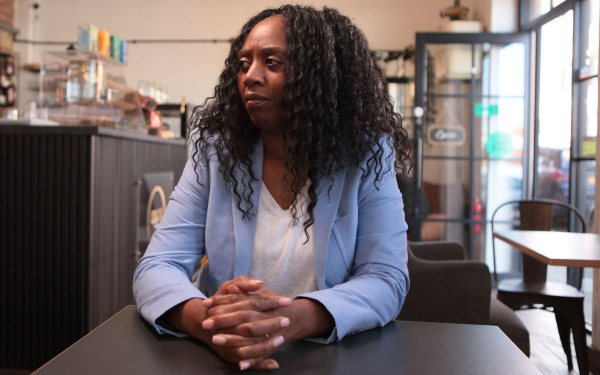
Social Work England has issued a guide to talking and writing about social work to improve how the profession is portrayed by the media and other organisations.
The regulator has urged journalists, screenwriters and others to produce more balanced portrayals of social work that go beyond crisis work and practice with children in the guide, launched yesterday as part of the second phase of its Change the Script campaign.
The campaign is designed to enhance public perceptions of social work by improving the way it is depicted. Last year’s first phase focused on encouraging TV and film producers to portray practitioners more realistically, with the second phase broadened to cover anyone communicating about the profession, including journalists, charities and councils.
Negative depictions of social work
Previous research into TV plot summaries from the 1950s to the 2010s, by linguistics academic Dr Maria Leedham, found that social workers rarely featured in programmes.
When they did, they almost always worked in child protection and were described as either judgmental bureaucrats or child snatchers.
This was echoed in the regulator’s guide to talking and writing about social work, which said that the profession was often portrayed negatively in the media for dramatic purposes, with many stories playing into stereotypes, such as practitioners taking children from their families.
“As some people won’t encounter social workers, this representation plays a key role in shaping public perceptions and attitudes about the profession,” said the guide, drawn up with the help of the British Association of Social Workers (BASW), UNISON and the regulator’s National Advisory Forum, which comprises experts by experience and social workers.
It warned that this risked fuelling “fear or suspicion from the very people social workers exist to support” and low morale, recruitment and retention issues within the profession itself.
Tips for talking about social work
It gave the following tips:
- Avoid depicting social workers as incompetent. Instead, aim to demonstrate that social workers are highly skilled professionals who have completed years of education and training at degree level.
- Avoid only showing social workers with children. Aim to use examples of social work that demonstrate the range of the profession.
- Avoid only showing social workers dealing with crises. Aim to include information about how social workers help to prevent crises.
- Avoid depictions of social work that solely focus on the negative. Aim to tell a balanced story that includes positive examples of social workers and the people social workers have supported, or proactively share stories of social work success.
- Avoid saying that social workers remove children from families without providing wider context behind such decisions. Aim to communicate the safety and security that is given to a child who is removed from a dangerous situation.
Though the guide highlighted the risks of negative media coverage undermining the public’s view of social work, it also said that views of social work were more positive than the “stereotype” of the profession as being undervalued suggested.
The public’s view of the profession
Alongside the guide, Social Work England released the results of a survey of 2,019 adults it commissioned, carried out in March 2025. This found four in five (81%) people were aware that social workers were highly trained and had to meet professional standards.
However, only 38% described their own personal view of social workers as positive, while 44% said they had been part of conversations where something negative was said about social workers, with 24% saying they themselves had said something negative about practitioners.
The online survey, carried out by Mortar Research, also found:
- 44% believed social workers were not respected in society;
- 36% thought social workers were negatively portrayed in the media;
- 46% said their views about social workers were influenced by what they saw, heard and read in the media;
- 54% said positive stories of people that social workers have supported would encourage them to have a better view of the profession.
Film shows positive face of social work
Sharing such stories is the focus of a short film, fronted by author and foster carer Beth Moran, that Social Work England has released as part of the second phase of Change the Script.
Moran reports her own positive experiences with social workers and speaks to both practitioners and those – including her own foster daughter – who have benefited from social work.
These include Clair Graham, who spent time in care as a teenager and tells Moran that she became a social worker “to be the person that I probably needed as a child”.

Social work manager Clair Graham (credit: Social Work England)
Graham, now a head of service, tackles the “myth” that social workers only work with children and families at times of crisis, detailing how she has worked with adults with learning disabilities or physical disabilities, and supported parents to advocate for their children, during her career.
‘Social services saved my life’
She then introduces Ken Londa, a young man who was involved in gangs until Graham started working with him, supporting him to become a musician who subsequently performed at the Commonwealth Games.
“Social services saved my life,” he says. “If Clair and the people like Clair didn’t get involved in my life, I know I’d be dead right now. They saw my talent, they saw the potential in me.”

Musician Ken Londa, who has lived experience of social work (credit: Social Work England)
Moran also meets Brighton-based social worker Lilly McCabe, who, like Graham, decided to become a social worker in the light of the difficulties she had experienced during her childhood.
She recounts her experience working with a mother, who initially would not let McCabe into her house out of fear of what she was there to do.
“We worked together probably for over two years to help her leave an abusive relationship, learn much more about her children and build a deeper connection with them. She eventually was really empowered to take back control of her life.”

Novelist Beth Moran and social worker Lilly McCabe (credit: Social Work England)
Social Work England chief executive Colum Conway said: “The negative public image that social work often suffers from is unfair, and it has been held for far too long. Social workers play a vital role in society, supporting individuals and families – protecting, empowering and supporting people to improve their chances in life.
“This is the story we want the nation to tell about social work and we believe we have a huge opportunity to do that through this campaign.”







 Bournemouth, Christchurch and Poole
Bournemouth, Christchurch and Poole  Hampshire County Council
Hampshire County Council  Oxfordshire County Council
Oxfordshire County Council  South Gloucestershire Council
South Gloucestershire Council  Wokingham Borough Council
Wokingham Borough Council  Embedding learning in social work teams through a multi-agency approach
Embedding learning in social work teams through a multi-agency approach  The family safeguarding approach: 5 years on
The family safeguarding approach: 5 years on  Harnessing social work values to shape your career pathway
Harnessing social work values to shape your career pathway  Webinar: building a practice framework with the influence of practitioner voice
Webinar: building a practice framework with the influence of practitioner voice  Workforce Insights – showcasing a selection of the sector’s top recruiters
Workforce Insights – showcasing a selection of the sector’s top recruiters  Free CPD on Parkinson’s for health and social care staff
Free CPD on Parkinson’s for health and social care staff 

 Facebook
Facebook X
X LinkedIn
LinkedIn Instagram
Instagram
So SWE coddled by Unison and BASW, urges journalists and film makers not to just concentrate on social work with children by releasing a film that concentrated on social work with children. Done would say this is another extraordinary example of clear thinking and competence by SWE. Inept and laughable at the same time is a skil too I suppose.